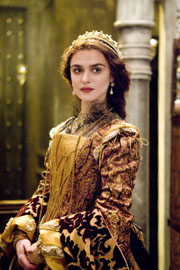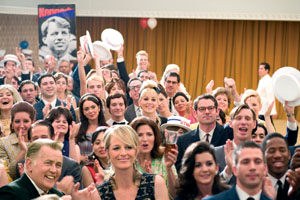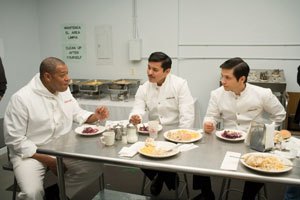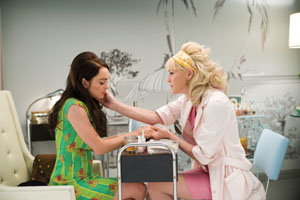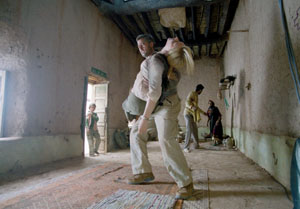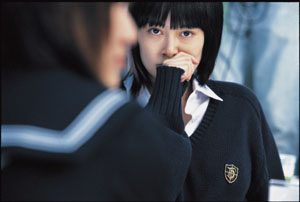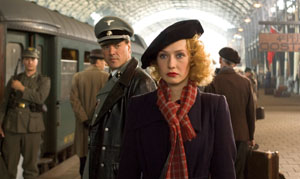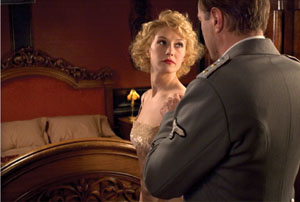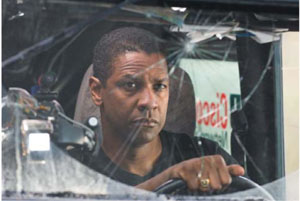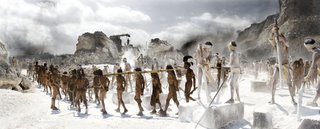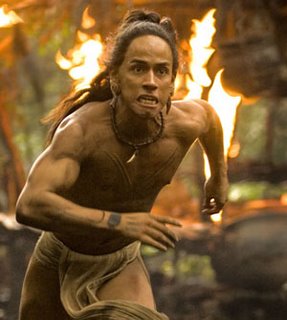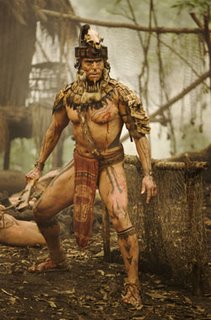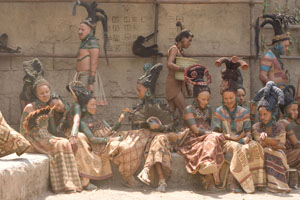Blood Diamond
Cast: Leonardo DiCaprio, Djimon Hounso, Jennifer Connelly
Edward Zwick's (The Seige, The Last Samurai) latest film is one of the most powerful films you will see this year. It's Hollywood with a conscience - almost.
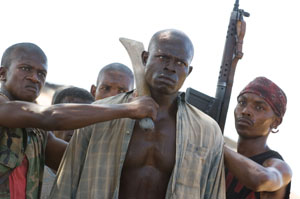
Blood (or conflict) diamonds are gems that are mined and sold by terrorists/freedom fighters (delete according to your political persuasion) to fund their cause. This film, set during the civil war in Sierra Leone in the 1990s, focuses on two completely different Africans. Solomon Vandy (Djimon Hounso) is a fisherman, trying to raise a family and get a good education for his son. His life is thrown into turmoil when the village is attacked and he is captured by a militia group and forced to work in a diamond mine. While working he finds a large, rare pink diamond, which he hides, just before he is capture by the government forces and put in prison.
Danny Archer (Leonardo DiCaprio) is a white mercenary from Zimbabwe who gets caught trying to smuggle diamonds across the border and ends up in the same prison as Vandy. Archer hears about the pink diamond and tries to convince Vandy to lead him to it so that they can share in the wealth. What starts as a simple task becomes complicated when Vandy discovers his family is in a refugee camp and his son has been taken by the militia to become a child soldier, so the hunt is not only for a diamond but also for a boy. They are joined on the quest by an American journalist Maddy Bowen (Jennifer Connelly).

As the story unfolds, the film addresses many issues relating to the political situation, the ethics of diamond mining, child soldiers and wraps them up in a fantastic action movie filled with powerful emotions. Zwick did a similar thing with his underrated film THE SEIGE, where he looked at the patriot act in the US and took it to a hypothetical conclusion where martial law was enforced in New York.
Although this film does highlight the situation that existed in Sierra Leone in a fictional setting it does not really give a completely impartial view of the situation and tends to favour the diamond companies' version of the situation.
The film portrays the local militia as barbarians, and there is no doubt that they have committed atrocities in the name of their cause, which was to stop the exploitation of their country and the local people by the diamond companies. This may sound like a simplification of a complex situation but one of the greatest fears the diamond companies had about the conflict diamonds was not that they were being used to buy weapons (what do they care if the locals want to kill each other), but that the market was being flooded with cheap gems. De Beers holds a monopoly on the gem market and controls the quantity that enters the market and the price they command. This is never really pointed out in the film. There is a similar situation occurring Nigeria with the crude oil, where local guerillas are attacking installations and kidnapping oil workers to draw attention to the exploitation being carried out by the US oil companies.
However, whatever your political views are about the situation in Africa and the dubious ethics of the diamond market, you can't help but be moved by what happens in the film. Djimon Hounso is superb as the father searching for his son at any cost. He fills the role with such believable passion you can't help feeling for him. DeCaprio's mercenary, Archer, is just that – mercenary – and he does it well, it's a pity his accent doesn't always hold up but it's not any easy one to get right, especially for an American. But that is nit-picking because for the rest of the role he is superb and really looks and acts the part. What's more, Archer starts to develop a heart under the influence of Vandy and Conelly's journalist.
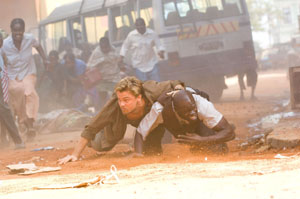
There is plenty of action, which anyone who has seen Zwick's other films will know he does very well. The director also avoids having a clichéd Hollywood happy ending. There is some justice, but not for all.
Apart from my quibble with diamond mining politics – if you had any conscience you wouldn't buy any diamonds, conflict free or otherwise – the film is still one of the most powerful films you will see this year – and it's a great adventure story too. Not to be missed.
Blood Diamond is on general release from January 26 through Warner Brothers.
